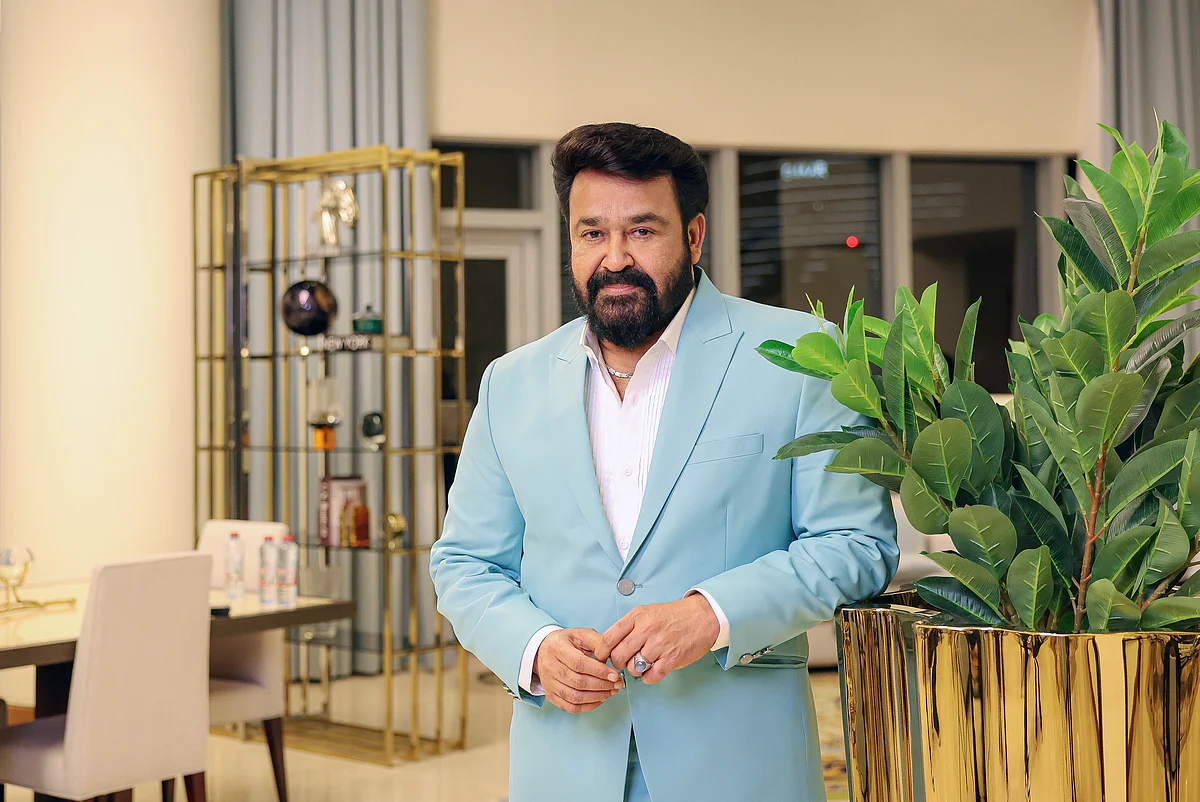Can Mohanlal lead AMMA again as president without addressing #MeToo concerns? Industry divided
In 2018, Mohanlal dismissed the #MeToo movement as “a fad” in an interview with Gulf News

Dubai: The upcoming general body meeting of the Kerala Film Body, Association of Malayalam Movie Artists (AMMA), could mark a pivotal — or perilous — moment in the history of Malayalam cinema. If reports like the one published in Malayala Manorama are to be believed and superstar Mohanlal returns as AMMA president, then let’s be clear: this would be a brutal betrayal of every survivor who has dared to speak up, every reformer who has pushed for transparency, and every voice that believed the Hema Committee’s findings could be a catalyst for real change.
Malayalam superstar Mohanlal's #MeToo interview with Gulf News goes viral amid Hema Committee Report
Here's why it's problematic. In 2018, Mohanlal dismissed the #MeToo movement as “a fad” in an interview with Gulf News.
That remark was not just careless — it was a damning indication of how removed AMMA’s leadership was from the trauma and systemic injustice faced by women in the industry. And yet, we now stand at the edge of handing the reins back to that same individual.
What message does this send to survivors who risked everything to speak up? What hope does it leave for the Women in Cinema Collective (WCC), a rare force of integrity in an industry often content with silence?
There's another catch. Mohanlal has reportedly agreed to returning as AMMA President if fresh elections aren't held.
According to the organisation’s ad-hoc committee, the proposal, if approved by AMMA’s general body on June 22, would see the current leadership remain unchanged. Translation: Rape accused and AMMA members like Siddique, accused of sexual assault, will be back in the revered fold with zero accountability.
This development has understandably sparked debate, with critics arguing that retaining the status quo without an election undermines transparency and the reforms demanded after AMMA’s controversial handling of sexual assault cases.
The emphasis on 'star power' over accountability has also drawn concern from women's rights advocates and former members who quit in protest over the association’s stance on the #MeToo movement. Interestingly, in a separate interview, actors like Rima Kallingal had hoped for change in the way AMMA's leadership is chosen.
The ad-hoc committee was formed earlier this year after several key resignations and has since overseen AMMA’s administrative and welfare responsibilities.
However, AMMA’s past decisions continue to haunt its reputation. The group was heavily criticised for reinstating actor Dileep, who was accused in a sexual assault case. Prominent members like Parvathy Thiruvothu and Revathy resigned in protest, calling for greater gender sensitivity and institutional accountability.
When asked about actor Siddique, who is facing a sexual assault allegation, Jayan said, “The association would support its members until proven guilty in court.”
As the June 22 general body meeting approaches, AMMA faces renewed scrutiny—caught between its loyalty to legacy and the growing calls for change.
In an exclusive interview with me last year, actress Parvathy Thiruvothu — one of the co-founders of WCC and one of Malayalam cinema’s most consistent voices for justice — pulled no punches. Reflecting on AMMA’s mass resignations, she said:
“Resigning at such an incredibly revelatory stage and behaving as if it’s a noble move fell really short.”
She called it what it was: an absolute cop-out. AMMA’s disbanding was not accountability — it was evasion. And the idea that those very same individuals, including Mohanlal, might now regroup and return under the pretense of “stability” or “experience” is nothing short of regressive.
Parvathy was equally candid about the silence of the industry’s male powerhouses — actors like nepo babies Dulquer Salmaan and Fahadh Faasil — who have not taken public stands.
“Speaking up is the bare minimum when you are the most privileged,” she said, echoing the frustration of countless others watching survivors pay the price for being vocal while their abusers face no consequence — often continuing to be cast, celebrated, and shielded by fan clubs that grant them impunity.
The Hema Committee report — commissioned by the Kerala government — laid bare the rot in the industry: rampant sexual abuse, gendered power imbalances, and shoddy workplace protections. But without implementation, those findings are toothless. And what could be more symbolic of that inertia than reinstating a president who once trivialised the very movement that inspired the committee’s formation?
Let’s not conflate stardom with statesmanship. Mohanlal may be one of Malayalam cinema’s greatest actors — no one’s questioning his craft. But AMMA is not a movie set, and the survivors do not need a charismatic performer at the helm. They need a leader with moral clarity, the willingness to listen, and the courage to push for a systemic overhaul.
If Mohanlal returns as AMMA’s president, it would not just be a poor decision. It would be a resounding declaration that this industry still sees reform as a nuisance — not a necessity.
Sign up for the Daily Briefing
Get the latest news and updates straight to your inbox
Network Links
GN StoreDownload our app
© Al Nisr Publishing LLC 2026. All rights reserved.
